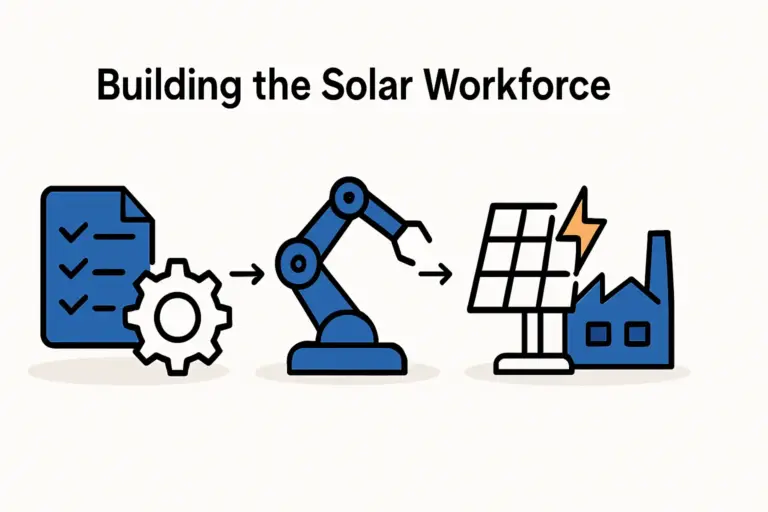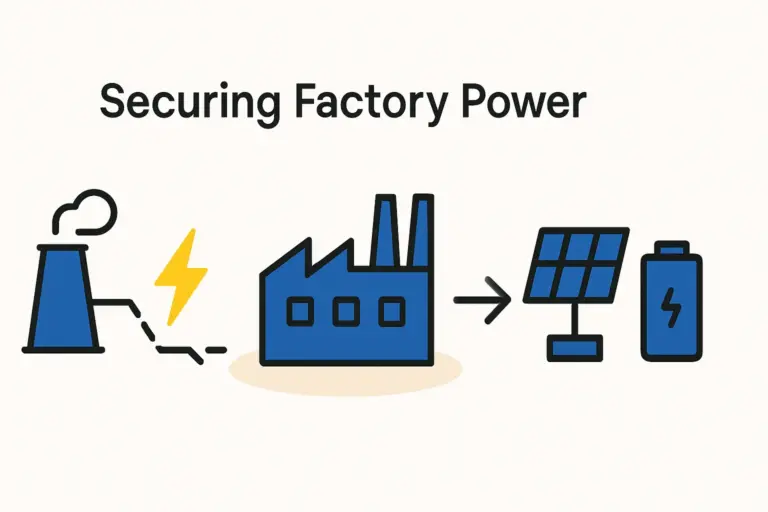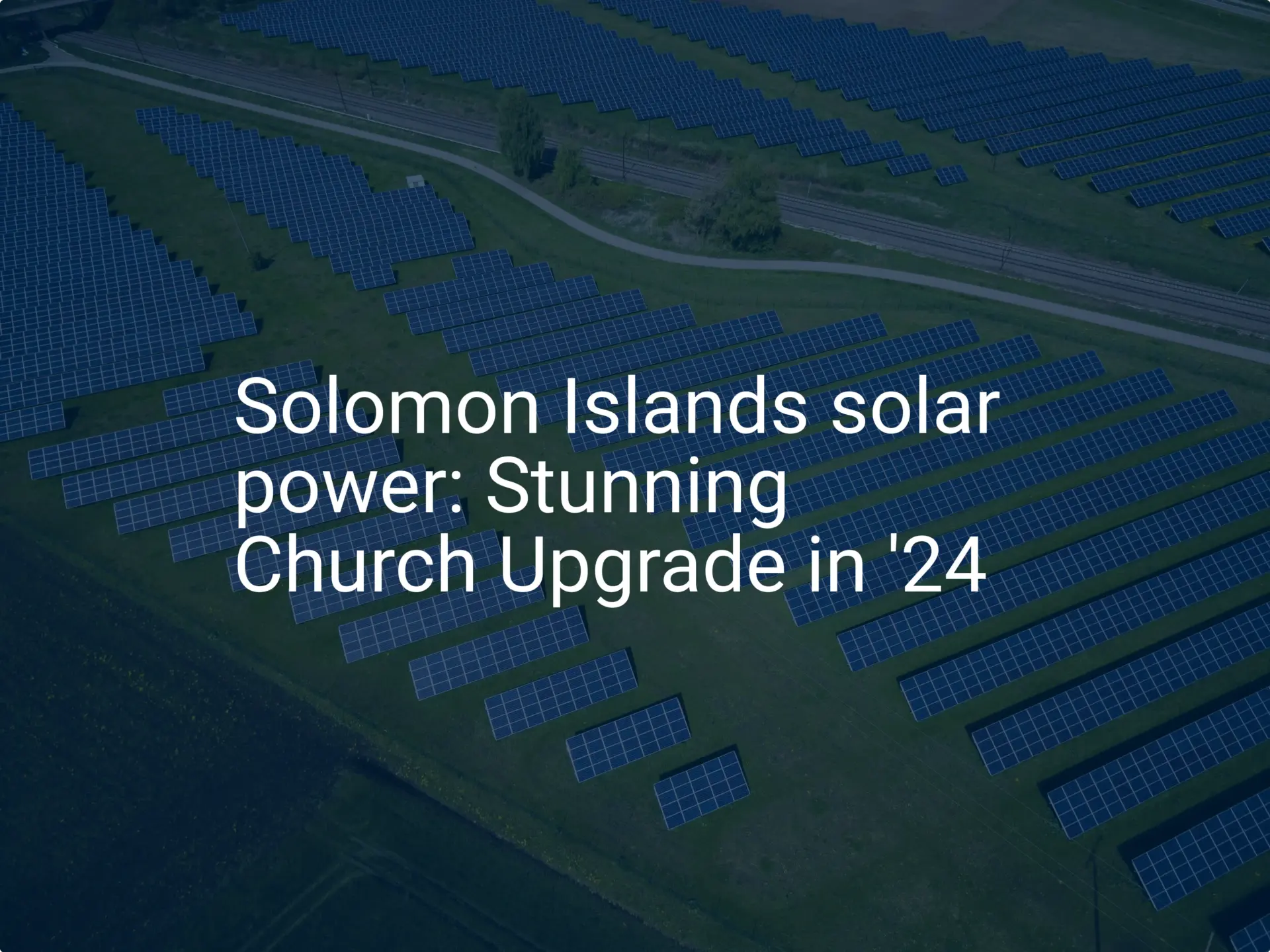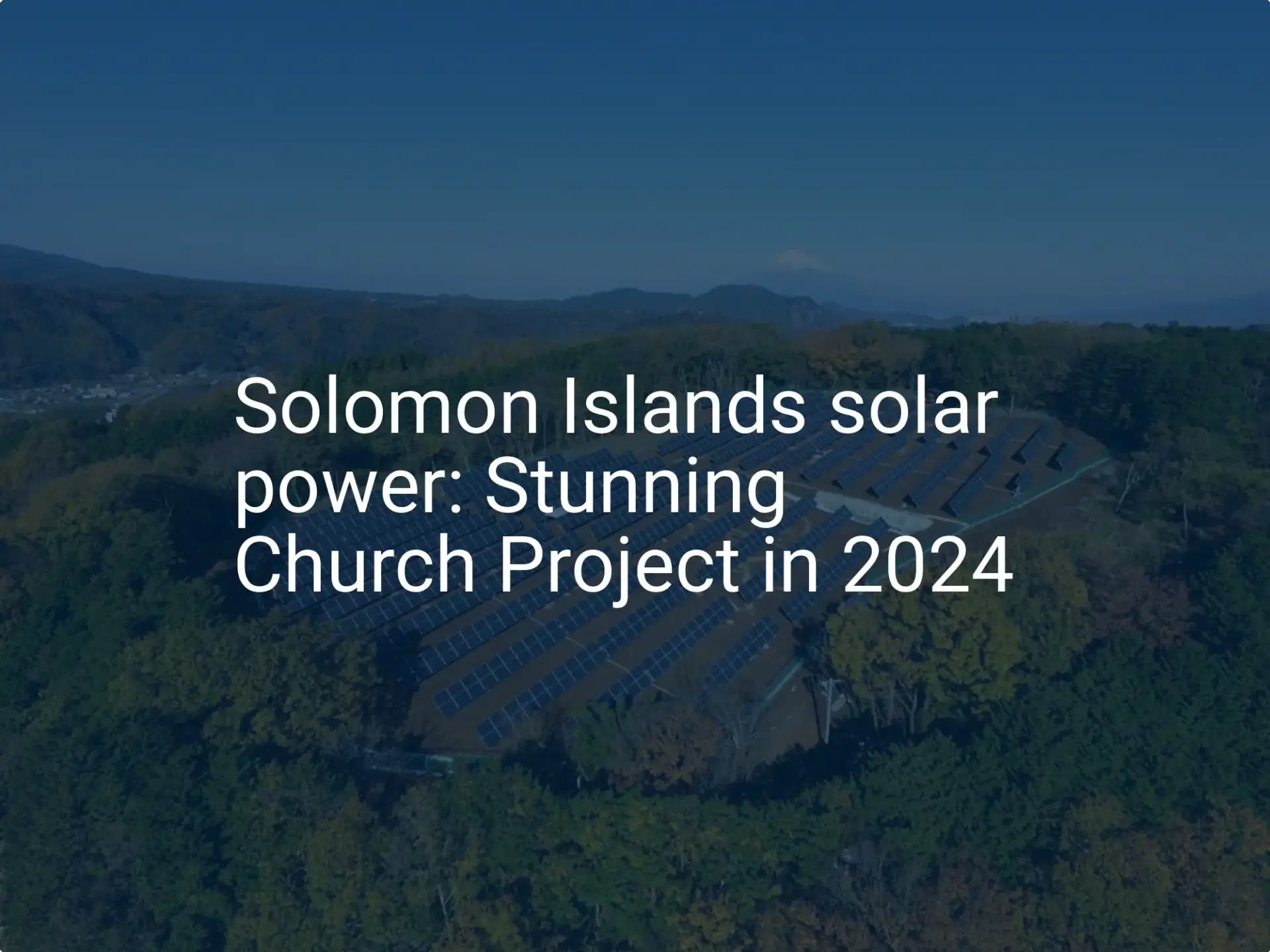A Solar Entrepreneur’s Guide to the Solomon Islands’ Foreign Investment Act
For the international entrepreneur, the Solomon Islands represents a compelling paradox. With over 300 days of sunshine annually, its potential for solar energy is immense. Yet, its unique regulatory and cultural landscape can seem complex from the outside.
Many prospective investors see the opportunity but hesitate at the perceived procedural hurdles, unsure of the first step. This hesitation often stems from a lack of clear, straightforward information.
This guide provides that clarity. It is designed for business professionals exploring a venture in the Solomon Islands’ solar sector, offering a step-by-step walkthrough of the Foreign Investment Act of 2005 and its related processes. Our objective is to transform regulatory uncertainty into a predictable, manageable project phase, allowing you to focus on your core business: establishing a successful solar venture.
Understanding the Foundation: The Foreign Investment Act and Invest Solomon
The cornerstone of foreign investment in the country is the Foreign Investment Act. Its primary purpose is not to restrict, but to register, monitor, and encourage foreign capital that contributes to the nation’s economic development. For any solar entrepreneur, the central body to know is Invest Solomon, the country’s official Investment Promotion Agency.
Think of Invest Solomon as the official gateway. All foreign investors must register their proposed venture with this agency before commencing any business activities. The agency distinguishes between business activities reserved for locals and those open to foreign participation. Crucially, renewable energy generation and the manufacturing of related components fall squarely into the ‘open’ category, signaling the government’s strategic interest in attracting expertise and capital to this sector.
The Four-Step Process for Establishing Your Solar Venture
While navigating the administrative pathway requires diligence, the process itself can be broken down into four distinct and logical stages.
Step 1: Foreign Investment Registration with Invest Solomon
This initial registration is the most critical step. It involves submitting a detailed application to Invest Solomon to obtain a Foreign Investment Certificate. This application is more than a formality; it is the business case for your project.
The required documentation typically includes:
- A comprehensive business proposal or business plan detailing the scope, objectives, and financial projections of the solar venture.
- Proof of financial capability to fund the proposed investment.
- Details of the company and its directors or shareholders.
- A nominal application fee.
Experience from turnkey projects in similar emerging markets shows that a proposal which clearly articulates benefits to the local economy—such as job creation, contribution to energy independence, or technology transfer—is often viewed more favorably and processed more efficiently.
Step 2: Business Registration with the Company Haus
Once you have secured the Foreign Investment Certificate, the next step is to legally establish your business entity within the Solomon Islands. This is a separate process managed by the Registrar of Companies, commonly known as the ‘Company Haus.’

This involves formally incorporating a local company (e.g., as a subsidiary of your foreign parent company) or registering as a foreign company operating in the country. This legal step gives your venture the official standing to open bank accounts, sign contracts, and hire employees. It is a common point of confusion for new investors: the Invest Solomon certificate grants permission to invest, while the Company Haus registration creates the legal vehicle for that investment.
Step 3: Securing Necessary Sector-Specific Approvals
With your company legally formed, you must obtain the necessary approvals for the energy sector. The primary body here is the Ministry of Mines, Energy and Rural Electrification (MMERE), which oversees the country’s energy policy and projects.
Furthermore, any significant project, especially one involving manufacturing or land development, will likely require an Environmental Impact Assessment (EIA). This is submitted to the Ministry of Environment, Climate Change, Disaster Management and Meteorology. It’s essential to factor the time and resources for these sector-specific approvals into your project timeline, as they are non-negotiable for long-term operational success.
Step 4: Navigating Land Acquisition and Leases
This is arguably the most nuanced aspect of establishing a physical presence in the Solomon Islands. Approximately 87% of the land is held under customary ownership, meaning it is owned by indigenous groups or clans and governed by traditional laws.
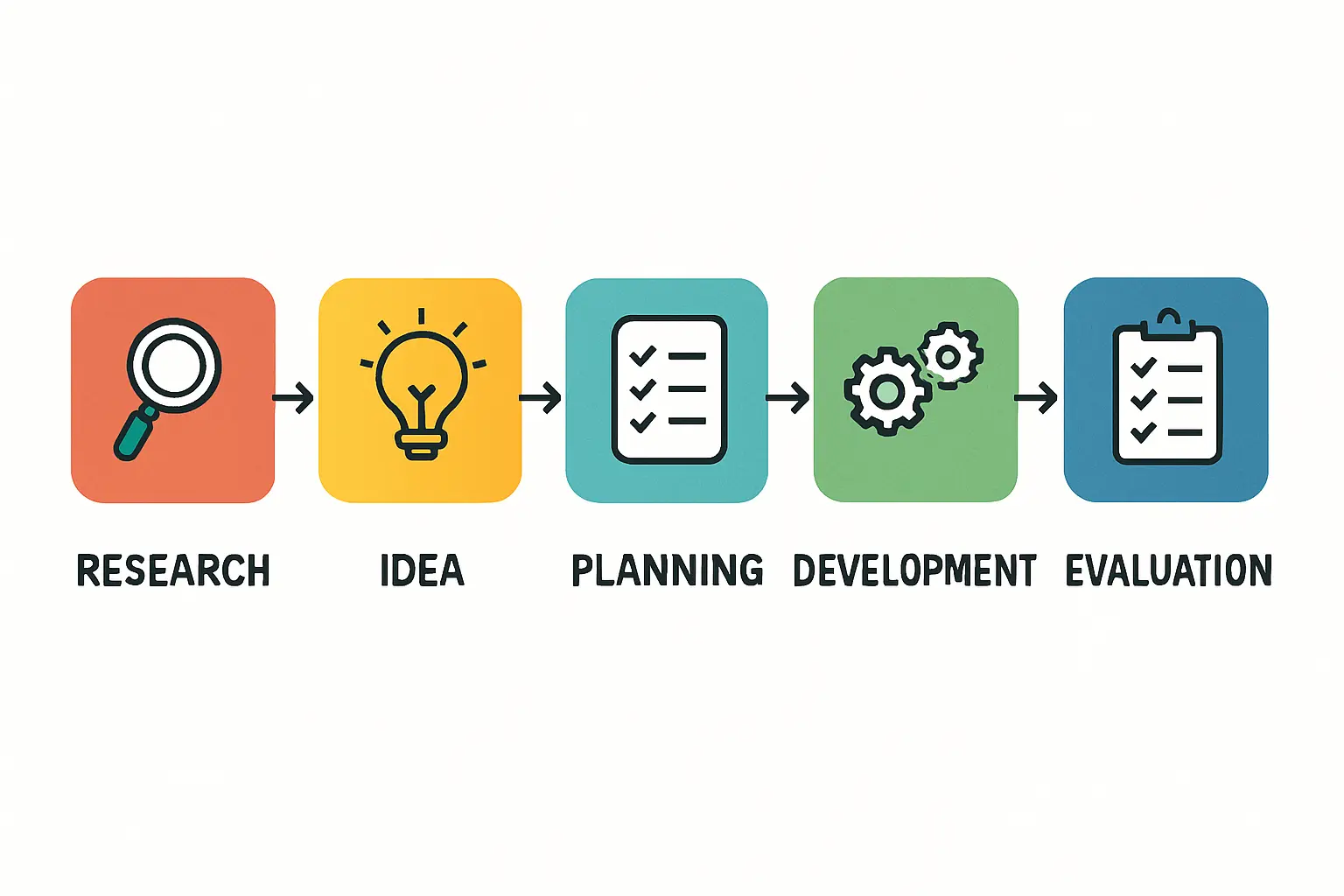
Foreign investors cannot purchase customary land outright. The standard and legally sound procedure is to secure a long-term lease, often for a period of 50 to 75 years. This process involves:
- Identifying suitable land.
- Engaging directly with the customary landowners to negotiate terms.
- Formalizing the agreement through legal channels to ensure it is registered and binding.
This stage requires significant patience, cultural awareness, and expert local legal counsel. Experience from past projects in island nations shows that securing land often takes the most time and should be initiated early in the process.
Unlocking Financial Advantages: Key Incentives for Solar Investors
The Solomon Islands’ government actively encourages investment in renewable energy through a framework of fiscal incentives. Accessing these incentives, which are among the most attractive in the Pacific region, can substantially improve the financial viability of a new solar venture.
Tax Holidays and Concessions
For ventures deemed to be of significant benefit to the national economy—a category for which solar energy projects readily qualify—the government may grant a ‘pioneer status.’ This can include a corporate tax holiday for a period of five years or more, effectively allowing the business to reinvest its early profits into growth.
Import Duty Exemptions
One of the most direct financial benefits is the potential for full exemption from customs duties and sales tax on the importation of capital equipment. For a solar module manufacturing plant, this applies to essential manufacturing machinery, as well as raw materials not available locally. This incentive alone can significantly reduce initial capital expenditure.
Streamlined Support
While not a direct financial incentive, holding a Foreign Investment Certificate from Invest Solomon provides a degree of official recognition. The agency can act as a facilitator, helping coordinate with other government departments and smoothing the path for subsequent approvals.
Common Pitfalls and How to Mitigate Them
Awareness of potential challenges is as important as understanding the opportunities. Here are a few to keep in mind:
-
Bureaucratic Delays: Government processes can be slower than in other jurisdictions. Mitigate this by submitting meticulously prepared, complete, and accurate documentation from the outset and maintaining patient, professional follow-up.
-
Logistical Challenges: As an archipelago, logistics for shipping equipment and materials can be complex and costly. Working with experienced logistics partners familiar with the region is vital.
-
Understanding Local Context: Success often depends on building strong local relationships. Underestimating the importance of local business etiquette and community engagement is a common mistake.
Frequently Asked Questions (FAQ) for Solar Investors in the Solomon Islands
Q1: How long does the entire registration process typically take?
A: If all documentation is properly prepared, the initial registration with Invest Solomon and the Company Haus can take between 3 to 6 months. However, securing land and sector-specific permits can significantly extend this timeline. A realistic project plan should budget 9 to 12 months for all pre-operational approvals.
Q2: What is the minimum investment required to qualify for incentives?
A: There is no fixed minimum capital requirement stated in the Act. Eligibility for incentives is assessed on a case-by-case basis, focusing on the project’s scale, its potential for job creation, its contribution to national energy goals, and its overall economic impact.
Q3: Can a foreign investor own land outright?
A: No, foreign entities cannot own customary land, which constitutes the vast majority of the country. The legally recognized and secure method for land access is through a registered long-term lease negotiated with the customary landowners.
Q4: Is it necessary to have a local partner?
A: While not legally mandatory for a venture in the solar sector, having a reputable local partner is highly advisable. A local partner can provide invaluable assistance in navigating land negotiations, government relations, and the local business culture, significantly reducing project risk.
The path to establishing a solar enterprise in the Solomon Islands is well-defined, governed by the Foreign Investment Act. While it demands thorough preparation and a respect for local protocols, the framework is designed to support, rather than hinder, well-planned ventures. Success is not a matter of finding shortcuts, but of executing each step with diligence.
With a clear understanding of this legal and administrative map, an entrepreneur can confidently move to the next step: developing the detailed financial models and operational plans that will form the core of an investment proposal.



